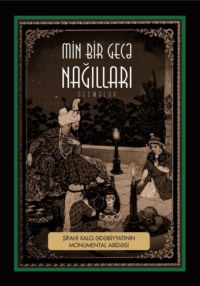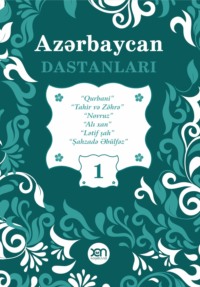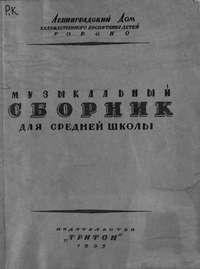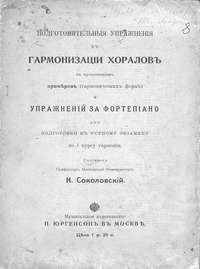 полная версия
полная версияA plain and literal translation of the Arabian nights entertainments, now entituled The Book of the Thousand Nights and a Night. Volume 7 (of 17)
She resumed, It hath reached me, O auspicious King, that when they took Gharib, they jailed him in the idol’s domed shrine; and locking the doors upon him, went their way. As soon as they were gone, Gharib gazed at the idol, which was of red carnelian, with collars of pearls and precious stones about its neck, and presently he went close to it and lifting it up, dashed it on the ground and brake it in bits; after which he lay down and slept till daybreak. When morning morrowed, the Queen took seat on her throne and said, “O men, bring me the prisoner.” So they opened the temple doors and entering, found the idol broken in pieces, whereupon they buffeted their faces till the blood ran from the corners of their eyes. Then they made at Gharib to seize him; but he smote one of them with his fist and slew him, and so did he with another and yet another, till he had slain five-and-twenty of them and the rest fled and went in to Queen Jan Shah, shrieking loudly. Quoth she, “What is the matter?” and quoth they, “The prisoner hath broken thine idol and slain thy men,” and told her all that had passed. When she heard this, she cast her crown to the ground and said, “There is no worth left in idols!” Then she mounted amid a thousand fighting-men and rode to the temple, where she found Gharib had gotten him a sword and come forth and was slaying men and overthrowing warriors. When she saw his prowess, her heart was drowned in the love of him and she said to herself, “I have no need of the idol and care for naught save this Gharib, that he may lie in my bosom the rest of my life.” Then she cried to her men, “Hold aloof from him and leave him to himself!”; then, going up to him she muttered certain magical words, whereupon his arm became benumbed, his forearm relaxed and the sword dropped from his hand. So they seized him and pinioned him, as he stood confounded, stupefied. Then the Queen returned to her palace, and seating herself on her seat of estate, bade her people withdraw and leave Gharib with her. When they were alone, she said to him, “O dog of the Arabs, wilt thou shiver my idol and slay my people?” He replied, “O accursed woman, had he been a god he had defended himself?” Quoth she, “Stroke me and I will forgive thee all thou hast done.” But he replied, saying, “I will do nought of this.” And she said, “By the virtue of my faith, I will torture thee with grievous torture!” So she took water and conjuring over it, sprinkled it upon him and he became an ape. And she used to feed and water and keep him in a closet, appointing one to care for him; and in this plight he abode two years. Then she called him to her one day and said to him, “Wilt thou hearken to me?” And he signed to her with his head, “Yes.” So she rejoiced and freed him from the enchantment. Then she brought him food and he ate and toyed with her and kissed her, so that she trusted in him. When it was night she lay down and said to him, “Come, do thy business.” He replied, “’Tis well;” and, mounting on her breast, seized her by the neck and brake it, nor did he arise from her till life had left her. Then, seeing an open cabinet, he went in and found there a sword of damascened73 steel and a targe of Chinese iron; so he armed himself cap-à-pie and waited till the day. As soon as it was morning, he went forth and stood at the gate of the palace. When the Emirs came and would have gone in to do their service to the Queen, they found Gharib standing at the gate, clad in complete war-gear; and he said to them, “O folk, leave the service of idols and worship the All-wise King, Creator of Night and Day, the Lord of men, the Quickener of dry bones, for He made all things and hath dominion over all.” When the Kafirs heard this, they ran at him, but he fell on them like a rending lion and charged through them again and again, slaying of them much people;–And Shahrazad perceived the dawn of day and ceased saying her permitted say.
Now when it was the Six Hundred and Seventy-seventh Night,She pursued, It hath reached me, O auspicious King, that when the Kafirs fell upon Gharib, he slew of them much people; but, when the night came, they overcame him by dint of numbers and would have taken him by strenuous effort, when behold, there descended upon the Infidels a thousand Marids, under the command of Zalzal, who plied them with the keen sabre and made them drink the cup of destruction, whilst Allah hurried their souls to Hell-fire, till but few were left of the people of Jan Shah to tell the tale and the rest cried out, “Quarter! Quarter!” and believed in the Requiting King, whom no one thing diverteth from other thing, the Destroyer of the Jabábirah74 and Exterminator of the Akásirah, Lord of this world and of the next. Then Zalzal saluted Gharib and gave him joy of his safety; and Gharib said to him, “How knowest thou of my case?” and he replied, “O my lord, my father kept me in prison two years, after sending thee to the Valley of Fire; then he released me, and I abode with him another year, till I was restored to favour with him, when I slew him and his troops submitted to me. I ruled them for a year’s space till, one night, I lay down to sleep, having thee in thought, and saw thee in a dream, fighting against the people of Jan Shah; wherefore I took these thousand Marids and came to thee.” And Gharib marvelled at this happy conjuncture. Then he seized upon Jan Shah’s treasures and those of the slain and appointed a ruler over the city; after which the Marids took up Gharib and the monies and he lay the same night in the Castle of Crystal. He abode Zalzal’s guest six months, when he desired to depart; so Zalzal gave him rich presents and despatched three thousand Marids, who brought the spoils of Karaj-city and added them to those of Jan Shah. Then Zalzal loaded forty thousand Marids with the treasure and himself taking up Gharib, flew with his host towards the city of Isbanir al-Madain where they arrived at midnight. But as Gharib glanced around he saw the walls invested on all sides by a conquering army,75 as it were the surging sea, so he said to Zalzal, “O my brother, what is the cause of this siege and whence came this army?” Then he alighted on the terrace-roof of his palace and cried out, saying, “Ho, Star o’ Morn! Ho, Mahdiyah!” Whereupon the twain started up from sleep in amazement and said, “Who calleth us at this hour?” Quoth he, “’Tis I, your lord, Gharib, the Marvellous One of the deeds wondrous.” When the Princesses heard their lord’s voice, they rejoiced and so did the women and the eunuchs. Then Gharib went down to them and they threw themselves upon him and lullilooed with cries of joy, so that all the palace rang again and the Captains of the army awoke and said, “What is to do?” So they made for the palace and asked the eunuchs, “Hath one of the King’s women given birth to a child?”; and they answered, “No; but rejoice ye, for King Gharib hath returned to you.” So they rejoiced, and Gharib, after salams to the women came forth amongst his comrades, who threw themselves upon him and kissed his hands and feet, returning thanks to Almighty Allah and praising Him. Then he sat down on his throne, with his officers sitting about him, and questioned them of the beleaguering army. They replied, “O King, these troops sat down before the city three days ago and there are amongst them Jinns as well as men; but we know not what they want, for we have had with them neither battle nor speech.” And presently they added, “The name of the commander of the besieging army is Murad Shah and he hath with him an hundred thousand horse and three thousand foot, besides two hundred tribesmen of the Jinn.” Now the manner of his coming was wondrous.–And Shahrazad perceived the dawn of day and ceased to say her permitted say.
Now when it was the Six Hundred and Seventy-eighth Night,She said, It hath reached me, O auspicious King, that the cause of this army coming upon Isbanir city was wondrous. When the two men, whom Sabur had charged to drown his daughter Fakhr Taj, let her go, bidding her flee for her life, she went forth distracted, unknowing whither to turn and saying, “Where is thine eye, O Gharib, that thou mayst see my case and the misery I am in?”; and wandered on from country to country, and valley to valley, till she came to a Wady abounding in trees and streams, in whose midst stood a strong-based castle and a lofty-builded as it were one of the pavilions of Paradise. So she betook herself thither and entering the fortalice, found it hung and carpeted with stuffs of silk and great plenty of gold and silver vessels; and therein were an hundred beautiful damsels. When the maidens saw Fakhr Taj, they came up to her and saluted her, deeming her of the virgins of the Jinn, and asked her of her case. Quoth she, “I am daughter to the Persians’ King;” and told them all that had befallen her; which when they heard, they wept over her and condoled with her and comforted her, saying, “Be of good cheer and keep thine eyes cool and clear, for here shalt thou have meat and drink and raiment, and we all are thy handmaids.” She called down blessings on them and they brought her food, of which she ate till she was satisfied. Then quoth she to them, “Who is the owner of this palace and lord over you girls?” and quoth they, “King Salsál, son of Dál, is our master; he passeth a night here once in every month and fareth in the morning to rule over the tribes of the Jann.” So Fakhr Taj took up her abode with them and after five days she gave birth to a male child, as he were the moon. They cut his navel cord and kohl’d his eyes then they named him Murad Shah, and he grew up in his mother’s lap. After a while came King Salsal, riding on a paper-white elephant, as he were a tower plastered with lime and attended by the troops of the Jinn. He entered the palace, where the hundred damsels met him and kissed ground before him, and amongst them Fakhr Taj. When the King saw her, he looked at her and said to the others, “Who is yonder damsel?”; and they replied, “She is the daughter of Sabur, King of the Persians and Turks and Daylamites.” Quoth he, “Who brought her hither?” So they repeated to him her story; whereat he was moved to pity for her and said to her, “Grieve not, but take patience till thy son be grown a man, when I will go to the land of the Ajams and strike off thy father’s head from between his shoulders and seat thy son on the throne in his stead.” So she rose and kissed his hands and blessed him. Then she abode in the castle and her son grew up and was reared with the children of the King. They used to ride forth together a-hunting and birding and he became skilled in the chase of wild beasts and ravening lions and ate of their flesh, till his heart became harder than the rock. When he reached the age of fifteen, his spirit waxed big in him and he said to Fakhr Taj, “O my mamma, who is my papa?” She replied, “O my son, Gharib, King of Irak, is thy father and I am the King’s daughter, of the Persians,” and she told him her story. Quoth he, “Did my grandfather indeed give orders to slay thee and my father Gharib?”; and quoth she, “Yes.” Whereupon he, “By the claim thou hast on me for rearing me, I will assuredly go to thy father’s city and cut off his head and bring it into thy presence!”–And Shahrazad perceived the dawn of day and ceased saying her permitted say.
Now when it was the Six Hundred and Seventy-ninth Night,She said, It hath reached me, O auspicious King, that when Murad Shah son of Fakhr Taj thus bespake his mother, she rejoiced in his speech. Now he used to go a-riding with two hundred Marids till he grew to man’s estate, when he and they fell to making raids and cutting off the roads and they pushed their razzias ever farther till one day he attacked the city of Shiraz and took it. Then he proceeded to the palace and cut off the King’s head, as he sat on his throne, and slew many of his troops, whereupon the rest cried “Quarter! Quarter!” and kissed his stirrups. Finding that they numbered ten thousand horse, he led them to Balkh, where he slew the King of the city and put his men to the rout and made himself master of the riches of the place. Thence he passed to Núrayn,76 at the head of an army of thirty thousand horse, and the Lord of Nurayn came out to him, with treasure and tribute, and did him homage. Then he went on to Samarcand of the Persians and took the city, and after that to Akhlát77 and took that town also; nor was there any city he came to but he captured it. Thus Murad Shah became the head of a mighty host, and all the booty he made and spoils in the sundry cities he divided among his soldiery, who loved him for his valour and munificence. At last he came to Isbanir al-Madain and sat down before it, saying, “Let us wait till the rest of my army come up, when I will seize on my grandfather and solace my mother’s heart by smiting his neck in her presence.” So he sent for her, and by reason of this, there was no battle for three days, when Gharib and Zalzal arrived with the forty thousand Marids, laden with treasure and presents. They asked concerning the besiegers, but none could enlighten them beyond saying that the host had been there encamped for three days without a fight taking place. Presently came Fakhr Taj, and her son Murad Shah embraced her saying, “Sit in thy tent till I bring thy father to thee.” And she sought succour for him of the Lord of the Worlds, the Lord of the heavens and the Lord of the earths. Next morning, as soon as it was day, Murad Shah mounted and rode forth, with the two hundred Marids on his right hand and the Kings of men on his left, whilst the kettle-drums beat to battle. When Gharib heard this, he also took to horse and, calling his people to the combat, rode out, with the Jinn on his dexter hand and the men on his sinistral. Then came forth Murad Shah, armed cap-à-pie and drave his charger right and left, crying, “O folk, let none come forth to me but your King. If he conquer me, he shall be lord of both armies, and if I conquer him, I will slay him, as I have slain others.” When Gharib heard his speech, he said, “Avaunt, O dog of the Arabs!” And they charged at each other and lunged with lances, till they broke, then hewed at each other with swords, till the blades were notched; nor did they cease to advance and retire and wheel and career, till the day was half spent and their horses fell down under them, when they dismounted and gripped each other. Then Murad Shah seizing Gharib lifted him up and strove to dash him to the ground; but Gharib caught him by the ears and pulled him with his might, till it seemed to the youth as if the heavens were falling on the earth78 and he cried out, with his heart in his mouth, saying, “I yield myself to thy mercy, O Knight of the Age!” So Gharib bound him,–And Shahrazad perceived the dawn of day and ceased to say her permitted say.
Now when it was the Six Hundred and Eightieth Night,She continued, It hath reached me, O auspicious King, that when Gharib caught Murad Shah by the ears and well nigh tore them off he cried, “I yield myself to thy mercy, O Knight of the Age!” So Gharib bound him, and the Marids his comrades would have charged and rescued him, but Gharib fell on them with a thousand Marids and was about to smite them down, when they cried out, “Quarter! Quarter!” and threw away their arms. Then Gharib returned to his Shahmiyánah which was of green silk, embroidered with red gold and set with pearls and gems; and, seating himself on his throne, called for Murad Shah. So they brought him, shuffling in his manacles and shackles. When the prisoner saw him, he hung down his head for shame; and Gharib said to him, “O dog of the Arabs, who art thou that thou shouldst ride forth and measure thyself against kings?” Replied Murad Shah, “O my lord, reproach me not, for indeed I have excuse.” Quoth Gharib, “What manner of excuse hast thou?”; And quoth he, “Know, O my lord, that I came out to avenge my mother and my father on Sabur, King of the Persians; for he would have slain them; but my mother escaped and I know not whether he killed my father or not.” When Gharib heard these words, he replied, “By Allah, thou art indeed excusable! But who were thy father and mother and what are their names?” Murad Shah said, “My sire was Gharib, King of Al-Irak, and my mother Fakhr Taj, daughter of King Sabur of Persia.” When Gharib heard this, he gave a great cry and fell down fainting. They sprinkled rose-water on him, till he came to himself, when he said to Murad Shah, “Art thou indeed Gharib’s son by Fakhr Taj?”; and he replied, “Yes.” Cried Gharib, “Thou art a champion, the son of a champion. Loose my child!” And Sahim and Kaylajan went up to Murad Shah and set him free. Then Gharib embraced his son and, seating him beside himself, said to him, “Where is thy mother?” “She is with me in my tent,” answered Murad Shah; and Gharib said, “Bring her to me.” So Murad Shah mounted and repaired to his camp, where his comrades met him, rejoicing in his safety, and asked him of his case; but he answered, “This is no time for questions.” Then he went in to his mother and told her what had passed; whereat she was gladdened with exceeding gladness: so he carried her to Gharib, and they two embraced and rejoiced in each other. Then Fakhr Taj and Murad Shah islamised and expounded The Faith to their troops, who all made profession with heart and tongue. After this, Gharib sent for Sabur and his son Ward Shah, and upbraided them for their evil dealing and expounded Al-Islam to them; but they refused to profess; wherefore he crucified them on the gate of the city and the people decorated the town and held high festival. Then Gharib crowned Murad Shah with the crown of the Chosroes and made him King of the Persians and Turks and Medes; moreover, he made his uncle Al-Damigh, King over Al-Irak, and all the peoples and lands submitted themselves to Gharib. Then he abode in his kingship, doing justice among his lieges, wherefore all the people loved him, and he and his wives and comrades ceased not from all solace of life, till there came to them the Destroyer of Delights and Sunderer of Societies, and extolled be the perfection of Him whose glory endureth for ever and aye and whose boons embrace all His creatures! This is every thing that hath come down to us of the history of Gharib and Ajib.–And Abdullah bin Ma’amar al-Kaysi hath thus related the tale of
Hath the Arab’s daring performed such feat,Fed on camel’s milk and the lizard’s meat,That he cast on Kayánian crown his eye?Fie, O whirling world! on thy faith and fie!Hearing of this insult Mohammed exclaimed, “Allah shall tear his kingdom!” a prophecy which was of course fulfilled, or we should not have heard of it. These lines are horribly mutilated in the Dabistan iii. 99.
OTBAH 79 AND RAYYA
I went one year on the pilgrimage to the Holy House of Allah, and when I had accomplished my pilgrimage, I turned back for visitation of the tomb of the Prophet, whom Allah bless and keep! One night, as I sat in the garden,80 between the tomb and the pulpit, I heard a low moaning in a soft voice; so I listened to it and it said:—
Have the doves that moan in the lotus-treeWoke grief in thy heart and bred misery?Or doth memory of maiden in beauty decktCause this doubt in thee, this despondency?O night, thou art longsome for love-sick spriteComplaining of Love and its ecstacy:Thou makest him wakeful, who burns with fireOf a love, like the live coal’s ardency.The moon is witness my heart is heldBy a moonlight brow of the brightest blee:I reckt not to see me by Love ensnaredTill ensnared before I could reck or see.Then the voice ceased and not knowing whence it came to me I abode perplexed; but lo! it again took up its lament and recited:—
Came Rayya’s phantom to grieve thy sightIn the thickest gloom of the black-haired Night!And hath love of slumber deprived those eyesAnd the phantom-vision vexed thy sprite?I cried to the Night, whose glooms were likeSeas that surge and billow with might, with might:“O Night, thou art longsome to lover whoHath no aid nor help save the morning-light!”She replied, “Complain not that I am long:’Tis love is the cause of thy longsome plight!”Now, at the first of the couplets, I sprang up and made for the quarter whence the sound came, nor had the voice ended repeating them, ere I was with the speaker and saw a youth of the utmost beauty, the hair of whose side face had not sprouted and in whose cheeks tears had worn twin trenches.–And Shahrazad perceived the dawn of day and ceased saying her permitted say.
Now when it was the Six Hundred and Eighty-first Night,She continued, It hath reached me, O auspicious King, that Abdullah ibn Ma’amar al-Kaysi thus continued:—So I sprang up and made for the quarter whence the sound came, nor had the voice ended repeating the verses, ere I was with the speaker and saw a youth on whose side face the hair had not sprouted and in whose cheeks tears had worn twin trenches. Quoth I to him, “Fair befal thee for a youth!”; and quoth he, “And thee also! Who art thou?” I replied, “Abdullah bin Ma’amar al-Kaysi;” and he said, “Dost thou want aught?” I rejoined, “I was sitting in the garden and naught hath troubled me this night but thy voice. With my life would I ransom thee! What aileth thee?” He said, “Sit thee down.” So I sat down and he continued, “I am Otbah bin al-Hubáb bin al-Mundhir bin al-Jamúh the Ansárí.81 I went out in the morning to the Mosque Al-Ahzáb82 and occupied myself there awhile with prayer-bows and prostrations, after which I withdrew apart, to worship privily. But lo! up came women, as they were moons, walking with a swaying gait, and surrounding a damsel of passing loveliness, perfect in beauty and grace, who stopped before me and said:—O Otbah, what sayst thou of union with one who seeketh union with thee? Then she left me and went away; and since that time I have had no tidings of her nor come upon any trace of her; and behold, I am distracted and do naught but remove from place to place.” Then he cried out and fell to the ground fainting. When he came to himself, it was as if the damask of his cheeks were dyed with safflower,83 and he recited these couplets:—
I see you with my heart from far countrieWould Heaven you also me from far could seeMy heart and eyes for you are sorrowing;My soul with you abides and you with me.I take no joy in life when you’re unseenOr Heaven or Garden of Eternity.Said I, “O Otbah, O son of my uncle, repent to thy Lord and crave pardon for thy sin; for before thee is the terror of standing up to Judgment.” He replied, “Far be it from me so to do. I shall never leave to love till the two mimosa-gatherers return.”84 I abode with him till daybreak, when I said to him, “Come let us go to the Mosque Al-Ahzab.” So we went thither and sat there, till we had prayed the midday prayers, when lo! up came the women; but the damsel was not among them. Quoth they to him, “O Otbah, what thinkest thou of her who seeketh union with thee?” He said, “And what of her?”; and they replied, “Her father hath taken her and departed to Al-Samawah.”85 I asked them the name of the damsel and they said, “She is called Rayyá, daughter of Al-Ghitríf al-Sulami.”86 Whereupon Otbah raised his head and recited these verses:—
My friends, Rayyá hath mounted soon as morning shone,And to Samáwah’s wilds her caravan is gone.My friends, I’ve wept till I can weep no more, Oh, say,Hath any one a tear that I can take on loan.Then said I to him, “O Otbah, I have brought with me great wealth, wherewith I desire to succour generous men; and by Allah, I will lavish it before thee,87 so thou mayst attain thy desire and more than thy desire! Come with me to the assembly of the Ansaris.” So we rose and went, till we entered their assembly, when I salam’d to them and they returned my greeting civilly. Then quoth I, “O assembly, what say ye of Otbah and his father?”: and they replied, “They are of the princes of the Arabs.” I continued, “Know that he is smitten with the calamity of love and I desire your furtherance to Al-Samawah.” And they said, “To hear is to obey.” So they mounted with us, the whole party, and we rode till we drew near the place of the Banu Sulaym. Now when Ghitrif heard of our being near, he hastened forth to meet us, saying, “Long life to you, O nobles!”; whereto we replied, “And to thee also! Behold we are thy guests.” Quoth he, “Ye have lighted down at a most hospitable abode and ample;” and alighting he cried out, “Ho, all ye slaves, come down!” So they came down and spread skin-rugs and cushions and slaughtered sheep and cattle; but we said, “We will not taste of thy food, till thou have accomplished our need.” He asked, “And what is your need?”; and we answered, “We demand thy noble daughter in marriage for Otbah bin Hubab bin Mundhir the illustrious and well-born.” “O my brethren,” said he, “she whom you demand is owner of herself, and I will go in to her and tell her.” So he rose in wrath88 and went in to Rayya, who said to him, “O my papa, why do I see thee show anger?” And he replied, saying, “Certain of the Ansaris have come upon me to demand thy hand of me in marriage.” Quoth she, “They are noble chiefs; the Prophet, on whom be the choicest blessings and peace, intercedeth for them with Allah. For whom among them do they ask me?” Quoth he, “For a youth known as Otbah bin al-Hubab;” and she said, “I have heard of Otbah that he performeth what he promiseth and findeth what he seeketh.” Ghitrif cried, “I swear that I will never marry thee to him; no, never, for there hath been reported to me somewhat of thy converse with him.” Said she, “What was that? But in any case, I swear that the Ansaris shall not be uncivilly rejected; wherefore do thou offer them a fair excuse.” “How so?” “Make the dowry heavy to them and they will desist.” “Thou sayst well,” said he, and going out in haste, told the Ansaris, “The damsel of the tribe89 consenteth; but she requireth a dowry worthy herself. Who engageth for this?” “I,” answered I. Then said he, “I require for her a thousand bracelets of red gold and five thousand dirhams of the coinage of Hajar90 and a hundred pieces of woollen cloth and striped stuffs91 of Al-Yaman and five bladders of ambergris.” Said I, “Thou shalt have that much; dost thou consent?”; and he said, “I do consent.” So I despatched to Al-Medinah the Illumined92 a party of the Ansaris, who brought all for which I had become surety; whereupon they slaughtered sheep and cattle and the folk assembled to eat of the food. We abode thus forty days when Ghitrif said to us, “Take your bride.” So we sat her in a dromedary-litter and her father equipped her with thirty camel-loads of things of price; after which we farewelled him and journeyed till we came within a day’s journey of Al-Medinah the Illumined, when there fell upon us horsemen, with intent to plunder, and methinks they were of the Banu Sulaym. Otbah drove at them and slew of them much people, but fell back, wounded by a lance-thrust, and presently dropped to the earth. Then there came to us succour of the country people, who drove away the highwaymen; but Otbah’s days were ended. So we said, “Alas for Otbah, oh!;” and the damsel hearing it cast herself down from the camel and throwing herself upon him, cried out grievously and repeated these couplets:—









